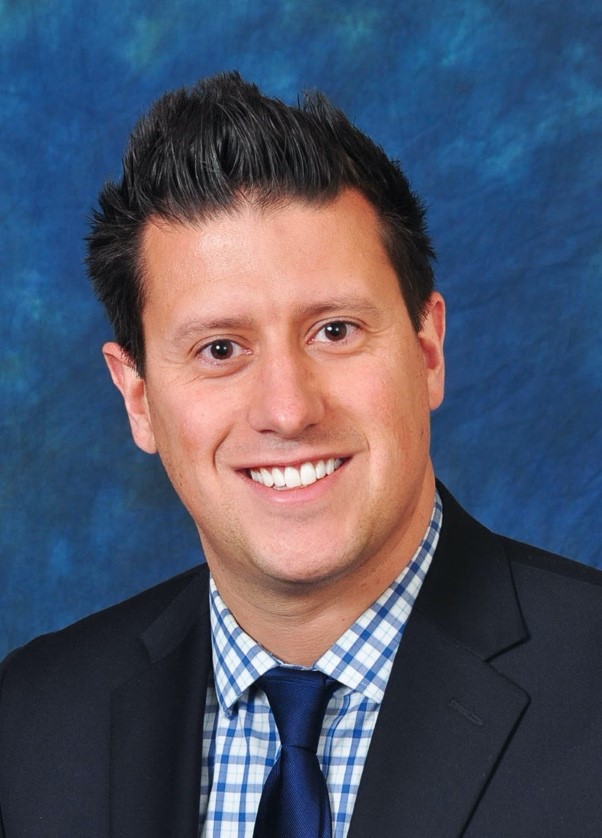
Describe your day-to-day tasks at the Veteran Affairs (VA) Boston.
In my role at the VA, I provide clinical pharmacy services and precept Northeastern advanced pharmacy practice experience (APPE) students. My students cover three of the five medical teams, and each has an average team census of 15 patients. My day usually starts by pre-rounding with my APPE students. I review their patients with them and discuss recommendations they might bring up on rounds. We usually round from 9 a.m. to noon during the week and often round by the patient bedside. In addition, students attend noon conference as well as teaching rounds if daily work rounds finish early. The afternoons are dedicated to patient care activities during transitions of care such as medication reconciliation, discharge counseling, and device teaching. We also follow up on drug information questions and conduct topic discussions/journal clubs. The VA Boston is unique because each medical team is made up of providers from three different Boston-area hospitals (Brigham and Women’s Hospital, Beth Israel Deaconess Medical Center, and Boston Medical Center), which provide different perspectives. We are lucky at the VA because many of our inpatients fill their prescriptions at the outpatient VA pharmacy, which helps tremendously with the medication reconciliation process. A lot of information is at our fingertips within the VA electronic medical records system. When I’m not at the VA, I’m fulfilling faculty responsibilities at Northeastern University related to teaching, scholarship, and service.
As a faculty preceptor, what advice would you give to students before their APPE year?
When it comes to choosing APPE rotations, I would challenge students not to choose sites solely because of convenience. I would advise students to think about where they want to be in 5 or 10 years and use the APPE year to explore different opportunities that might not otherwise be available to them. For example, if you have interests in oncology, now is your time to travel and explore that interest. During APPEs, I would encourage students to put in the time outside normal rotation hours. Some students and I calculated that they pay around $250 a day in tuition to be on rotation. Make the best of your investment! Because APPEs require self-directed learning, use your free time wisely – read literature, stay up to date, look up a new disease you’re unfamiliar with. When you are at your site, interact with patients and different providers. These things will set you apart from your peers. My students teach me as much as I would like to think I teach them. Another important part of an APPE rotation is giving and receiving feedback. You do not want to get to the end of a rotation and realize you were not meeting expectations because there was no consistent communication with your preceptor at the beginning and throughout the rotation block. Be professional, show up on time, do what you say, deliver, and try to exceed expectations, if you can. I would also encourage student pharmacists to get begin using Twitter (#TwitteRx; #MedTwitter) for professional learning and networking opportunities.
What is your favorite thing about serving as one of the Northeastern ACCP advisors?
I have served as the co-advisor to Northeastern University’s ACCP chapter with Dr. Debra Reid for the past several years. I was initially approached by passionate students interested in clinical pharmacy to start this chapter organization, which has continued to evolve. My favorite thing is seeing student leaders coming together for a common goal and getting others involved in clinical pharmacy. They also do a lot of outreach and service projects, which is really cool. Most individuals think clinical pharmacy exists solely in the hospital setting; however, clinical pharmacy is being practiced in the outpatient setting as well. I reconnected with one of the former founding Northeastern ACCP student chapter members at the 2019 ACCP Annual Meeting in New York City. It was a great full-circle moment to see that she is now precepting students and doing great things for the profession.
How has ACCP enhanced your professional development?
The ACCP Annual Meeting is a great opportunity to network with other clinicians and learn. I am motivated and inspired by seeing what others are doing at the Annual Meeting. The programming is strong and relevant, and I can earn recertification credits to update my clinical knowledge.
Many pharmacy students don’t receive personal finance education throughout pharmacy school. Because finance is one of your non-pharmacy interests, how can pharmacy students improve their financial literacy?
The good news is that a lot of information is available as it relates to personal finance. The struggle is finding good information and applying it to align with your own specific values and goals. Everyone is different, and no one path is right for everyone. If I were a pharmacy student and didn’t know where to start, I would begin with Your Financial Pharmacist and the White Coat Investor websites, which offer solid financial information for medical professionals. They also have informative podcasts that students can learn a lot from. The book titled I Will Teach You to Be Rich by Ramit Sethi contains basic advice about setting budgets and automating your finances as much as possible. In addition, I would encourage pharmacy students to talk to others about personal finance. There is a stigma around talking about finances, but I think there is a lot to be learned from the successes as well as the mistakes of others. As a student, time is on your side. Developing financial literacy and implementing a financial plan early in your career will pay dividends in the future.